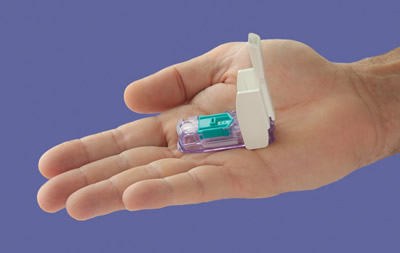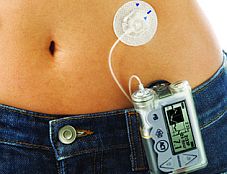Overprotective parenting might lead to obesity in children
Overprotective parenting might lead to obesity in children
 Overprotective moms might be damaging their children’s health by being too worried about letting them play outside. In a new study from the Telethon Kids Institute in Australia, 4,000 children between the ages of 10 and 11 were asked how much time they spent outdoors. The researchers found that if they had parents who were nervous and overprotective, they spent less time outside. As a result, the children got less exercise and had a 10-13% higher chance of being overweight or obese. Some researchers also say that overprotectiveness can have a big effect on how children see the world and interact with others, which might cause other long-term health problems.
Overprotective moms might be damaging their children’s health by being too worried about letting them play outside. In a new study from the Telethon Kids Institute in Australia, 4,000 children between the ages of 10 and 11 were asked how much time they spent outdoors. The researchers found that if they had parents who were nervous and overprotective, they spent less time outside. As a result, the children got less exercise and had a 10-13% higher chance of being overweight or obese. Some researchers also say that overprotectiveness can have a big effect on how children see the world and interact with others, which might cause other long-term health problems.
Polycystic Ovary Syndrome connected to type 2 diabetes
 If you suffer from Polycystic Ovary Syndrome (PCOS), you may be at a high risk for type 2 diabetes. PCOS is a hormonal condition that is connected to diabetes, and can cause obesity, hair loss, and infertility. A recent study from Monash University in Australia looked at how PCOS and diabetes are related, and what effect body fat might have on them. They found that almost 4% of the women with PCOS also had diabetes, while diabetes affected less then 1% of those who did not have PCOS. Researchers say that regular tests and treatment from a health professional can help to prevent diabetes in PCOS sufferers.
If you suffer from Polycystic Ovary Syndrome (PCOS), you may be at a high risk for type 2 diabetes. PCOS is a hormonal condition that is connected to diabetes, and can cause obesity, hair loss, and infertility. A recent study from Monash University in Australia looked at how PCOS and diabetes are related, and what effect body fat might have on them. They found that almost 4% of the women with PCOS also had diabetes, while diabetes affected less then 1% of those who did not have PCOS. Researchers say that regular tests and treatment from a health professional can help to prevent diabetes in PCOS sufferers.
FDA approves new diabetes medicine, Afrezza
 If you have type 1 diabetes, you know that controlling blood glucose levels can sometimes be difficult and uncomfortable. A new kind of medicine that can be inhaled (taken through your nose) has just been approved by the FDA. It offers a new way to keep blood glucose at healthy levels. Called Afrezza, the new treatment could be a good choice for people who have a hard time with regular insulin injections. However, the box has a serious warning label, which says that it cannot be used if you have certain lung diseases, such as asthma or chronic obstructive pulmonary disease (COPD).
If you have type 1 diabetes, you know that controlling blood glucose levels can sometimes be difficult and uncomfortable. A new kind of medicine that can be inhaled (taken through your nose) has just been approved by the FDA. It offers a new way to keep blood glucose at healthy levels. Called Afrezza, the new treatment could be a good choice for people who have a hard time with regular insulin injections. However, the box has a serious warning label, which says that it cannot be used if you have certain lung diseases, such as asthma or chronic obstructive pulmonary disease (COPD).
Strength and aerobic exercise together might be even more effective
 You may already know that exercise is one of the best ways to control or avoid diabetes. If you work out because of this, doing both strength and aerobic exercises might be the best way to stay in shape. A study from the University of Vienna looked at over 900 people with type 2 diabetes and found that doing either strength or aerobic training alone is less effective at controlling blood glucose than doing both together. However, the researchers say that different kinds of exercise could change the results, and that more study is needed.
You may already know that exercise is one of the best ways to control or avoid diabetes. If you work out because of this, doing both strength and aerobic exercises might be the best way to stay in shape. A study from the University of Vienna looked at over 900 people with type 2 diabetes and found that doing either strength or aerobic training alone is less effective at controlling blood glucose than doing both together. However, the researchers say that different kinds of exercise could change the results, and that more study is needed.
Knowing fast food brands could be a sign of unhealthy eating
 If your very familiar with the names and logos of some popular food brands, this might be a sign of an unhealthy diet. A recent study showed that children who knew the logos of fast food items – and the differences between them – were much more likely to be obese or overweight. Researchers say this could be because the children who know these brands spend more time eating their unhealthy foods. However, it was also found that some children had a lower risk of obesity, even if they knew the brands well, if they got regular exercise.
If your very familiar with the names and logos of some popular food brands, this might be a sign of an unhealthy diet. A recent study showed that children who knew the logos of fast food items – and the differences between them – were much more likely to be obese or overweight. Researchers say this could be because the children who know these brands spend more time eating their unhealthy foods. However, it was also found that some children had a lower risk of obesity, even if they knew the brands well, if they got regular exercise.
Insulin pumps might be useful for people with type 2 diabetes
 Some people with type 2 diabetes have a hard time controlling their blood glucose, especially when they need to use regular insulin injections. If you are one of these people, there may be another option in the future. A new study shows that insulin pumps, most commonly used for treating type 1 diabetes, might be more effective for type 2 than injections. In the study, those who used the pump had lower A1C levels and needed less insulin each day. If more studies are successful, insulin pumps could be a new, safe and effective treatment for people with type 2 diabetes.
Some people with type 2 diabetes have a hard time controlling their blood glucose, especially when they need to use regular insulin injections. If you are one of these people, there may be another option in the future. A new study shows that insulin pumps, most commonly used for treating type 1 diabetes, might be more effective for type 2 than injections. In the study, those who used the pump had lower A1C levels and needed less insulin each day. If more studies are successful, insulin pumps could be a new, safe and effective treatment for people with type 2 diabetes.
Insulin use over 50 might not be worth the side effects
 If you’re over 50 years old and use insulin to treat diabetes, this might not be the best choice for you. A new study looked at the effects that insulin, including pills and injections, has on people with diabetes who are over 50. People who start insulin at 45 have as much as 10 more months of good health than those who don’t use it. However, some who started using insulin over 50 did not benefit as much, and might not find it worth the side effects. Researchers say that people with an A1C over 8.5% might still benefit, but to always check with a health professional before you change your insulin routine.
If you’re over 50 years old and use insulin to treat diabetes, this might not be the best choice for you. A new study looked at the effects that insulin, including pills and injections, has on people with diabetes who are over 50. People who start insulin at 45 have as much as 10 more months of good health than those who don’t use it. However, some who started using insulin over 50 did not benefit as much, and might not find it worth the side effects. Researchers say that people with an A1C over 8.5% might still benefit, but to always check with a health professional before you change your insulin routine.
Statins can increase diabetes risk
 The side effects of some medicines can be serious, especially if you are already at risk for other conditions, like diabetes, that might be made worse by them. A new study shows that statins (a type of medicine that lowers cholesterol levels) might lead to a higher risk for type 2 diabetes. People who took statins every day were at a 32% higher risk of diabetes than people who took them less than 25% of days. The more often people use statins, the more likely they are to get diabetes, according to researchers.
The side effects of some medicines can be serious, especially if you are already at risk for other conditions, like diabetes, that might be made worse by them. A new study shows that statins (a type of medicine that lowers cholesterol levels) might lead to a higher risk for type 2 diabetes. People who took statins every day were at a 32% higher risk of diabetes than people who took them less than 25% of days. The more often people use statins, the more likely they are to get diabetes, according to researchers.
Possible new treatment for type 1 diabetes could be very effective
 As anyone with type 1 diabetes can tell you, managing this disease can be tricky, so it’s good news whenever a new kind of treatment appears. Scientists from Columbia University have managed to change the way some cells work in a human gut, so that they will produce insulin, whenever its needed to balance out blood glucose levels. Researchers say that, with more study, this could lead to very effective treatments in the future.
As anyone with type 1 diabetes can tell you, managing this disease can be tricky, so it’s good news whenever a new kind of treatment appears. Scientists from Columbia University have managed to change the way some cells work in a human gut, so that they will produce insulin, whenever its needed to balance out blood glucose levels. Researchers say that, with more study, this could lead to very effective treatments in the future.
New medicine could offer hope for people with chronic foot ulcers
 You might already know that diabetes puts you at a high risk for foot problems, some of which can be very serious. Just having diabetes means that wounds on your feet will heal more slowly, and this can lead to infections or ulcers. A new study found that at people who suffer from regular foot ulcers may now have hope for better treatment. A chemical called PDRN successfully healed foot ulcers over a 30-day trial, and participants only reported minor side effects. This means that it has good potential to treat some diabetes foot problems.
You might already know that diabetes puts you at a high risk for foot problems, some of which can be very serious. Just having diabetes means that wounds on your feet will heal more slowly, and this can lead to infections or ulcers. A new study found that at people who suffer from regular foot ulcers may now have hope for better treatment. A chemical called PDRN successfully healed foot ulcers over a 30-day trial, and participants only reported minor side effects. This means that it has good potential to treat some diabetes foot problems.

